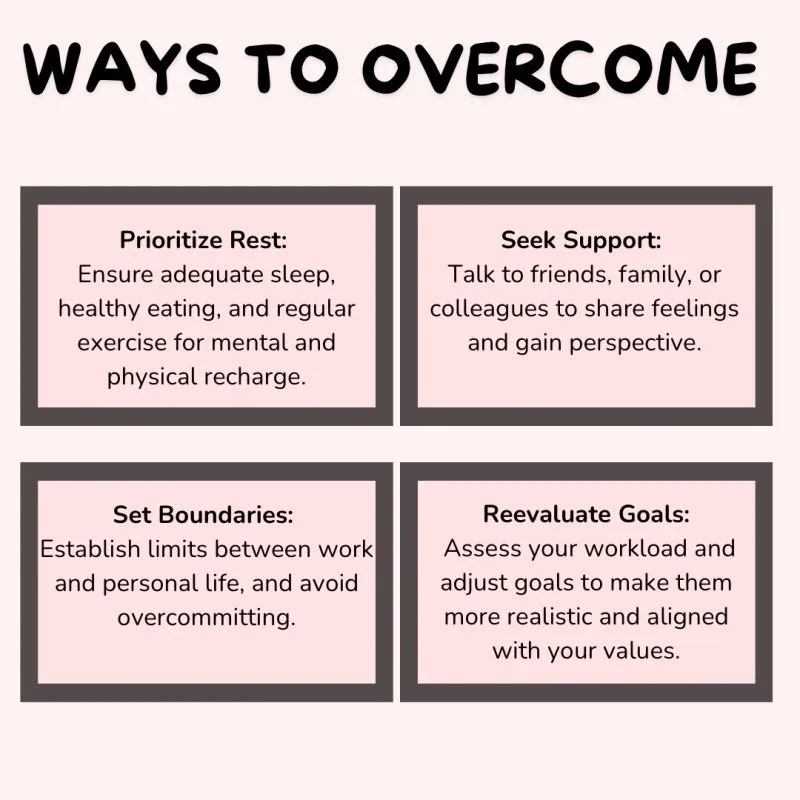Working more than 55 hours per week increases stroke risk by 33% and literally shrinks brain regions responsible for memory and learning. Research reveals that chronic overwork doesn't just make you tired—it rewires your brain in ways that reduce intelligence, creativity, and decision-making ability. Discover what overwork does to your brain and evidence-based strategies to protect your cognitive health.
When Your Brain Pays the Price for Overwork
The idea that working longer hours leads to better results is deeply embedded in modern work culture, but neuroscience reveals a troubling reality: chronic overwork doesn't just make you tired—it literally changes your brain structure in ways that reduce your cognitive abilities. Research from University College London shows that people working more than 55 hours per week have a 33% higher risk of stroke and measurable shrinkage in brain regions responsible for memory, learning, and executive function. When we push our brains beyond their natural limits without adequate recovery, we trigger a cascade of neurological changes that ultimately make us less intelligent, less creative, and less capable of the very work we're trying to accomplish.
The Physical Brain Changes from Chronic Overwork
Hippocampus Shrinkage: When Memory Centers Deteriorate
Chronic work stress and long hours elevate cortisol levels, which directly attacks the hippocampus—your brain's primary memory center. Stanford University neuroimaging studies show that people with chronic work stress have hippocampi that are 10-20% smaller than their unstressed counterparts. This shrinkage impairs both the formation of new memories and the recall of existing ones, explaining why overworked people often feel forgetful and struggle to learn new information efficiently.
Prefrontal Cortex Dysfunction: Decision-Making Under Siege
The prefrontal cortex, responsible for executive functions like decision-making, planning, and impulse control, becomes less active under chronic work stress. Harvard Medical School research demonstrates that people working excessive hours show reduced prefrontal cortex activity, leading to poorer judgment, increased impulsivity, and difficulty prioritizing tasks effectively. This creates a cruel irony: the more you work, the worse you become at the strategic thinking that drives meaningful productivity.
Default Mode Network Disruption: When Creativity Dies
Your brain's default mode network—active during rest and responsible for creative insights, problem-solving, and self-reflection—becomes severely compromised by overwork. MIT cognitive scientists found that people who don't allow adequate mental downtime show 40% reduced activity in these networks, resulting in diminished creativity, fewer breakthrough insights, and an inability to see big-picture solutions to complex problems.
The Cognitive Cascade: How Brain Changes Compound
Mental Fatigue and Processing Speed Decline
Prolonged work without adequate breaks leads to accumulated mental fatigue that slows neural processing. Research from the University of Michigan shows that mental fatigue reduces cognitive processing speed by up to 50%, making simple tasks take longer and complex problems feel insurmountable. This isn't just feeling tired—it's measurable slowing of the electrical activity in your brain that governs thought speed and mental agility.
Attention and Concentration Erosion
Overwork systematically degrades your ability to maintain focused attention. Studies from the University of California, Irvine reveal that people working long hours without breaks show progressive decline in sustained attention capacity, with concentration spans dropping from an average of 12 minutes to just 3 minutes after several weeks of excessive work. This attention erosion makes deep work nearly impossible, forcing reliance on shallow, reactive task-switching.
Working Memory Overload
Your brain's working memory—the mental workspace for holding and manipulating information—has limited capacity that becomes severely compromised by chronic overwork. Carnegie Mellon research shows that work stress reduces working memory capacity by 30%, making it difficult to hold multiple pieces of information in mind simultaneously, follow complex instructions, or engage in multi-step problem-solving.
Sleep Deprivation: The Hidden Brain Damage Multiplier
Overwork often comes at the expense of sleep, creating a devastating compound effect on brain health. During sleep, your brain activates the glymphatic system—a waste clearance mechanism that removes toxic proteins associated with cognitive decline and dementia. When work schedules consistently cut into sleep time, this crucial brain maintenance is disrupted. University of Rochester research shows that people sleeping less than 6 hours nightly due to work demands accumulate brain toxins at rates 300% higher than those getting adequate sleep. Additionally, sleep deprivation impairs the consolidation of memories formed during the day, meaning that even the work you complete during long hours may not be properly stored or integrated into your knowledge base.
The Long-Term Neurological Risks of Chronic Overwork
Increased Risk of Neurodegenerative Disease
Longitudinal studies from the Whitehall II cohort show that people consistently working more than 55 hours per week have a 40% higher risk of developing dementia later in life. The chronic inflammation and stress hormone elevation from overwork appear to accelerate brain aging and increase vulnerability to neurodegenerative diseases. This suggests that current work habits may be mortgaging future cognitive health for short-term productivity gains.
Stroke and Cardiovascular Brain Damage
The brain's extensive vascular network makes it particularly vulnerable to the cardiovascular effects of chronic work stress. Research published in The Lancet demonstrates that working long hours increases stroke risk through multiple pathways: elevated blood pressure, increased inflammation, and disrupted blood clotting mechanisms. Even minor strokes can cause lasting cognitive impairment, making cardiovascular protection essential for brain health.
Depression and Anxiety-Related Brain Changes
Chronic overwork significantly increases risk of depression and anxiety, which themselves cause measurable brain changes. The Journal of Psychiatric Research shows that work-related mental health issues are associated with reduced gray matter volume in regions controlling emotion regulation and stress response, creating a self-perpetuating cycle where overwork makes the brain less capable of handling future stress.
Evidence-Based Strategies to Protect Your Brain from Overwork
Strategic Break Implementation
Your brain needs regular recovery periods to maintain optimal function. Research from DeskTime shows that the most productive people work in focused 52-minute intervals followed by 17-minute breaks. These breaks allow mental fatigue to clear and cognitive resources to replenish. Even 5-minute breaks every hour can significantly improve sustained attention and reduce the accumulation of mental fatigue that leads to cognitive decline.
Sleep as Cognitive Protection
Prioritizing 7-9 hours of quality sleep is perhaps the most powerful protection against overwork-induced brain damage. Sleep allows toxic protein clearance, memory consolidation, and neural repair.
Even small daily stressors from work can be better managed when sleep quality is protected. Creating strict boundaries around sleep time, even during busy periods, preserves the brain's natural restoration processes.
Physical Exercise as Neural Medicine
Regular physical activity promotes neuroplasticity, reduces stress hormones, and stimulates the production of brain-derived neurotrophic factor (BDNF), which supports neuron growth and protection. Even 20 minutes of moderate exercise can counteract some of the negative effects of work stress on the brain. Exercise also improves sleep quality and provides natural stress relief, creating multiple pathways of brain protection.
Mindfulness and Stress Reduction
Mindfulness practices directly counteract the stress-induced changes that damage brain structure. Studies show that just 8 weeks of mindfulness meditation can increase gray matter density in areas responsible for learning and memory while reducing activity in the amygdala, the brain's stress center.
Recognizing burnout early and implementing stress-reduction techniques can prevent progressive brain changes from becoming permanent.
Redefining Productivity: Working with Your Brain, Not Against It
The neuroscience of overwork reveals a fundamental truth: sustainable high performance requires working with your brain's natural rhythms rather than against them. Your brain operates optimally with periods of focused attention followed by rest, adequate sleep for memory consolidation and toxin clearance, and sufficient downtime for creative insight generation. Companies and individuals who embrace these biological realities consistently outperform those who rely on brute-force hours. The goal isn't to work less for the sake of working less—it's to work in ways that preserve and enhance the very cognitive abilities that drive meaningful achievement. When you protect your brain from chronic overwork, you're not just preventing damage; you're optimizing for the kind of clear thinking, creative problem-solving, and strategic insight that create lasting success.





